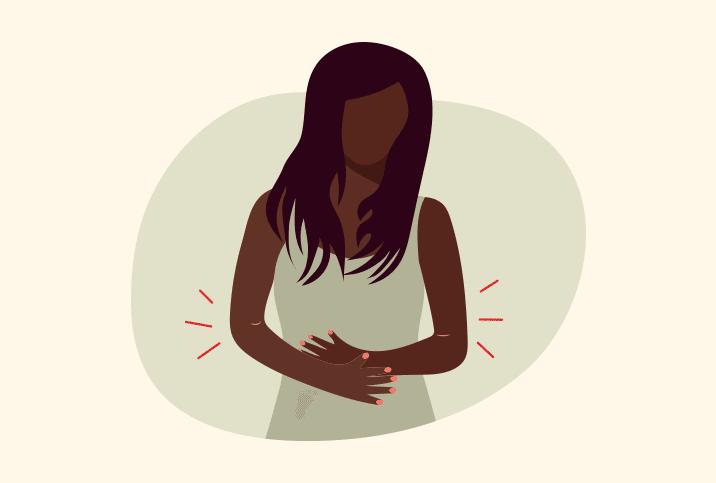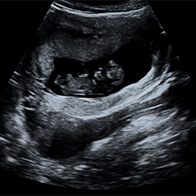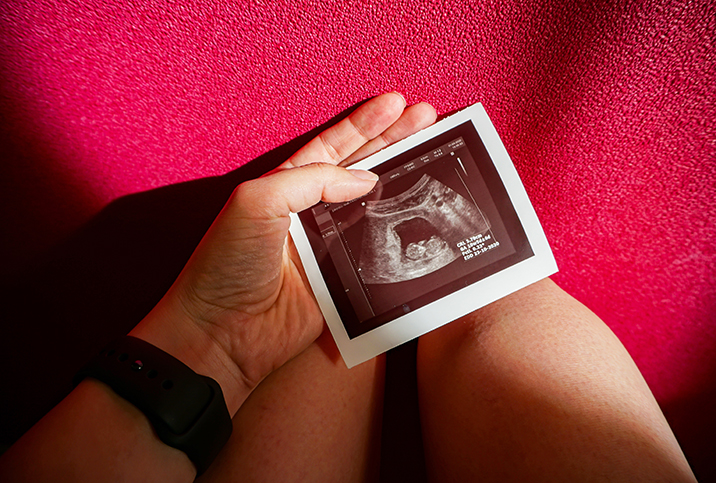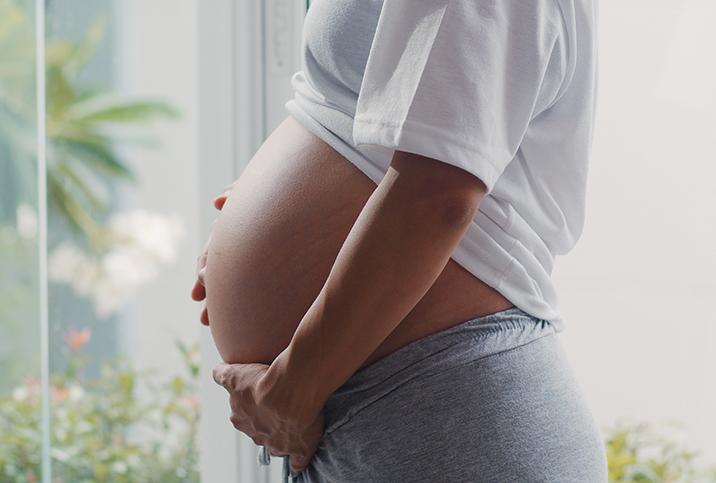The Psychological Impact of Phantom Fetal Kicks

When pregnant, you look forward to the day those little butterfly kicks begin to happen. Those reassuring thumps that let you know the baby is moving around. But, kicks after birth or pregnancy loss, known as phantom kicks, are very common and can happen days, months or even years later. These phantom kicks are not always a positive feeling and may stir up several emotions.
So, what are phantom kicks? Why do they happen? And what is going on?
How common are phantom kicks?
"Postpartum phantom fetal movements are not well-reported in medical literature," stated Megan Gray, M.D., an OB-GYN with Orlando Health Physician Associates. "These phantom movements are described as kicks or flutters that are similar to the movements the pregnant person experiences while pregnant."
Leena Nathan, M.D., an OB-GYN at UCLA Health Westlake Village, explained that "phantom kicks can happen to as many as 40 percent of postpartum women as highlighted in one study in 2019. Although it is not something women often speak about, we know that it can be common."
Kicks after birth or pregnancy loss, known as phantom kicks, are very common and can happen days, months or even years later.
In fact, the study in question, published in the Journal of Women's Health, showed that, on average, the women who participated felt phantom kicks for an average of 6.4 years after birth. One woman in the study reported feeling phantom kicks 28 years postpartum. Gray advised that "the study was small, including only 197 women, and required respondents to rely on memory, so it has some inherent biases."
Why do phantom kicks happen?
Nathan discussed the mystery behind phantom kicks. "We don't know exactly why some people experience phantom kicks and others don't. These flutter sensations are often due to gastrointestinal motility and gas, which some women are more sensitive to. Other times, it could be related to the psychology of having felt the baby move for months and the mind/body connection being so strong that can cause that sensation."
"Fatigue and an overstimulated brain in the postpartum period may also contribute to a heightened perception of sensations within the abdomen," added Gray. "The brain may perceive this as similar to fetal movements, as our brain often uses comparative experience to decipher sensations."
Although scientists explain the mechanism behind phantom kicks is unknown, clinicians do recognize they can have implications for a woman's postpartum mental health.
The impact of phantom kicks on mental health
"While phantom fetal movements can be heartwarming and endearing for some people, these movements can be distressing for others," Gray stated. In the study published in the Journal of Women's Health, the researchers found 25.7 percent of the respondents found the phantom movements distressing.
"If there was trauma related to pregnancy or delivery, a person feeling phantom fetal movements after birth may be more inclined to find these feelings distressing," Gray explained. "[For] those people anticipating pregnancy, whether the anticipation is perceived as positive or negative, phantom fetal movements could lead to distress and confusion."
Although some women reported finding phantom kicks comforting and nostalgic, there are several reasons why they can cause distress for some families, including:
- Previous miscarriage
- Previous stillbirth
- Fear of pregnancy in an abusive relationship
- Fear of pregnancy due to social or financial situations
- No plans to have further children
- Concern about managing another child if already coping with a complex family situation, such as supporting a child or relative with a long-term health condition
One of the women in the 2019 research study said she found the sensation "strange, a bit sad and mourned the loss of my pregnancy."
Researchers from the study found no significant association between phantom kicks and postnatal depression or anxiety, but they wrote, "women's responses to phantom kicks suggested that the experience could exacerbate symptoms of anxiety, particularly in the case of stillbirth."
Holly Lockwood-Waduge, RMN, SCPHN, an EFL practitioner and founder of the Peaceful Pony, delved into the topic of grief and phantom kicks a little further. "The loss of a child, through pregnancy, stillbirth or later childhood death, results in significant trauma for a mother and father. The reality of this loss can have a rippling negative effect on all aspects of life. A mother's mental health can be greatly affected. This could result in somatic (physical) experiences, like phantom kicks."
'The loss of a child, through pregnancy, stillbirth or later childhood death, results in significant trauma for a mother and father.'
Researchers from the Monash University in Australia highlighted "the lack of available information on the experience left women feeling alone in their experiences, which can be confusing and frightening during an already very stressful time."
Support for phantom kicks
Phantom kicks are nothing to be worried about physically. However, they can exacerbate distressing emotions for some people.
"Any woman who is having concern or distress from phantom fetal movements in the postpartum period should reach out to their OB-GYN, doctor or midwife," Gray advised.
"If they are unable to help directly, then they will be able to find someone who can," Gray continued. "People with a preexisting relationship with a licensed mental health therapist, psychologist or psychiatrist can also reach out to them for support. Sharing your story with supportive friends or family may also be helpful. You may find that many of your friends or family have had similar experiences."




















